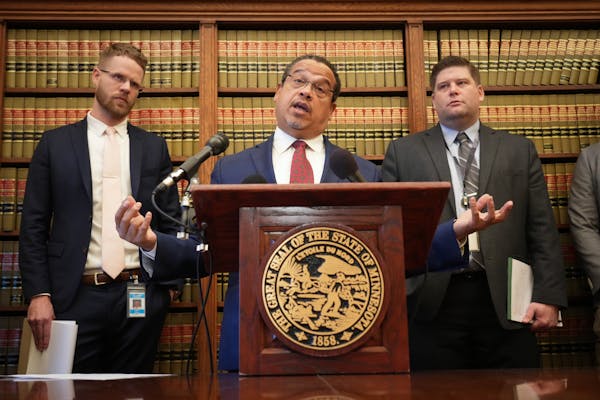Gov. Tim Walz expressed openness to the proposed merger of Minneapolis-based Fairview Health Services with Sioux Falls-based Sanford Health, signaling friendlier political waters than the nonprofit health giants encountered when they tried to combine a decade ago.
In an interview Wednesday at the Capitol, Walz told the Star Tribune that the engagement between his administration and Sanford, the nation's largest rural health care system, has been transparent and candid — even before talk of a merger was floated earlier this month.
"What I can tell you is the new CEO at Sanford, the communication and the relationship with our office is 100 percent different than it used to be," Walz said.
The two health systems tried to combine in 2013, but the deal fell apart after resistance from Minnesota political leaders. The debate prominently featured the University of Minnesota because Fairview owns the U's teaching hospital in Minneapolis.
Asked whether the door was more open for a deal now than it was a decade ago, Walz said, "I think that's correct." But the governor also said: "There's a lot of work to be done left in it."
Walz, who represented southern Minnesota in Congress for over a decade, said a "tough" environment for rural health care has strained health systems' ability to provide needed care and remain financially viable. He also said those economics have necessitated mergers.
But Walz cautioned that such mergers cannot be devoid of consideration for quality of care. He invoked the plight of Albert Lea residents after Mayo Clinic several years ago reduced services at the town's hospital.
"The delivery in rural health care will look different, and there is going to be some realignment," Walz said. "We just need to make sure the communities are being heard and service is not interrupted."
State lawmakers don't have an automatic say in whether the deal can move forward, but the experience of the failed Sanford-Fairview merger in 2013 shows how they can make such combinations difficult.
Minnesota's former attorney general Lori Swanson led opposition to the plan by challenging the idea of an out-of-state organization running the University of Minnesota Medical Center, the taxpayer-supported training location for most of the state's doctors. State lawmakers introduced legislation to block the move, and former Minnesota Gov. Mark Dayton backed a plan for the university to take over Fairview instead.
Shortly after Swanson publicly disclosed talks with Fairview in 2013, Sanford abandoned the idea, saying it had a policy of "only going where we are invited."
Minnesota's current attorney general, Keith Ellison, has signaled a different approach to evaluating the merger idea. Whereas Swanson quickly held a high-profile public hearing at the Capitol, where she grilled Sanford executives, Ellison is scheduling three or four public hearings — including in greater Minnesota — that likely will begin in January.
His office is also encouraging Minnesotans to use a dedicated web form to submit comments.
"Rural health care is just a challenge," Walz said, "So I think the AG is right on this at the listening session. The complexity of the teaching hospital and the University of Minnesota play into this."
